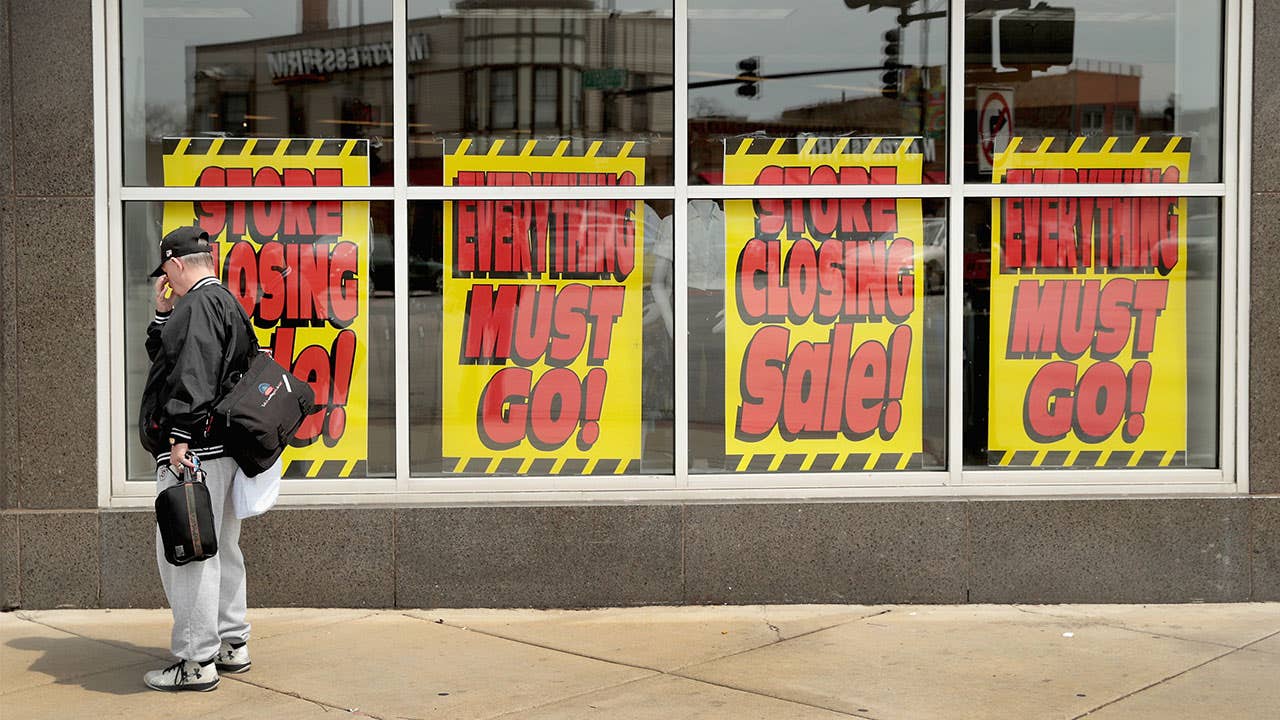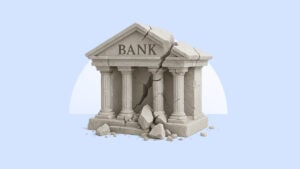What happens to your retail credit card when a store closes?

Key takeaways
- The retail credit card issuer may offer different options to you once the store closes, like letting you use the card at sister stores or businesses if they remain open.
- You’re still responsible for paying off your balance on the retail credit card, even if the retailer files for bankruptcy.
- You could also see a drop in your credit score, whether you choose to cancel your retail credit card or the issuer cancels your account.
Retail credit cards can hold a great deal of value for loyal shoppers, but many former retail giants have gone under in recent years. If you have a retail credit card with a store that’s experiencing financial strain, you may feel the impact when the retailer experiences closures or must file for bankruptcy. Here’s what you need to know about how your credit can be affected and what you can do to minimize any damage.
Types of store closures
Store closures don’t often mean your favorite retailer disappears overnight. A store closure could go many ways, like:
- Physical location closures: A retailer may close only its physical locations and move all business online, in which case you should still be able to use your card as usual. Or a store may only close some locations or one brand within a family.
- Single-brand closures: If a retailer closes all stores, your card account may be closed, too. But if some locations or a brand’s sister stores (different brands that operate under the same parent company) remain open, your card account may still be valid.
- Bankruptcy: In the case of bankruptcy, the details can also vary. Sometimes stores that file for bankruptcy keep their doors open in the hopes of recovery. If this is the case, your card will still be usable. The retailer may bounce back, allowing you to keep using your card as you always have, or it may fail, canceling accounts and leaving you without credit card access.
What happens to your card?
Your retail credit card’s issuer may offer different options to you once the store closes.
As mentioned, you may be able to continue using your card if the retailer has sister stores that will remain open. Alternatively, you may be issued a product change to another one of the issuer’s credit cards. Or your account could be closed altogether.
You have no obligation to accept alternative offers for account closure, but they may be helpful if your retail credit card was your primary credit card. If you have other cards you often use, you may decide to simply let your account go.
What if you carry a balance on the card?
You will still be responsible for paying off your balance, even if a retailer files for bankruptcy. Generally, retail credit cards are issued through a finance company separate from the store itself, meaning any debt you owe is held by the bank, not the store. This is true even for “closed-loop” cards that are only valid with specific retailers.
If a store goes under, the balance you owe is still due to the finance company that manages your card. You should receive communication from the finance company letting you know where to send payments. You’ll still receive monthly statements and can continue making regular payments until the balance is paid off in full.
Interest and fees will continue to apply to your balance as well, so it’s important to pay down your debt as quickly as possible to avoid accumulating high interest charges.
If your retailer managed its own credit properties (which is less common), you will still be responsible for paying the balance. The debt will likely be sold, and you will receive directions for repayment from the company that owns the debt.
What if you have unused rewards?
Contact your retailer before store closures happen to find out how long you have to redeem your unused rewards. Any rewards you have accumulated will likely be invalid once your account is closed.
Depending on the details of the closure, you may be offered a transfer or other redemption options; for instance, if your retailer has sister stores that will remain open, they may honor the rewards. Similarly, if a store is closing physical locations and moving online, you should still be able to use your rewards online.
How a store closing impacts your credit score
Whether you choose to cancel your retail credit card or the issuer cancels your account, you may see a dip in your credit score.
The primary factors at play here are the length of credit history and credit utilization. If your retail card was one of your oldest credit cards, it could affect your average age of accounts, which makes up 15 percent of your FICO score. The good news is that activity even from closed accounts remains on your report for up to ten years, so your on-time payments will continue working in your favor.
More impactful than your credit history is your credit utilization. Let’s say your overall available credit is $8,000, and your retail credit card limit makes up $1,500 of that amount. Once the card is closed, you only have $6,500 of available credit. The recommended credit utilization is 30 percent or less of your total credit. If your available credit is $8,000, that gives you $2,400 to play with. However, lowering it to $6,500 lowers your recommended utilization to $1,950.
Therefore, keeping your credit utilization under the recommended 30 percent will be crucial to keeping your credit score healthy.
Keep in mind: Credit utilization shows how much credit you use in relation to the amount you have available. When you close an account, you’ll no longer have access to that part of your available credit.
How to reduce the impact on your credit score
The best way to reduce a hit to your credit score is to keep up good credit habits, like timely payments in full and keeping utilization low across each of your accounts. A sustained history of using credit responsibly is the best way to build your credit score, and a single closed account shouldn’t be too detrimental.
If at all possible, it may also be smart to keep your retail account open or accept a product change if the option is available, even if you don’t foresee using it as much. This will keep your credit history intact for your account, which can be especially helpful for a longstanding account.
But if you choose to cancel your credit card, maintaining good credit habits with other cards will help your score improve and stay in a good place long-term.
The bottom line
Retail credit cards are often more accessible than other personal cards, making them popular choices for building credit. However, you can still experience long-term effects if the retailer goes out of business, making that retail card a possible financial risk.
If you are considering applying for a retail credit card, look for established retailers you already shop with often. Make sure the card’s benefits outweigh any fees and redeem your rewards regularly instead of stockpiling them. Because retail credit card interest rates can be even higher than standard credit cards, it’s also important to pay your balances off each month to keep from accumulating debt.
Why we ask for feedback Your feedback helps us improve our content and services. It takes less than a minute to complete.
Your responses are anonymous and will only be used for improving our website.






